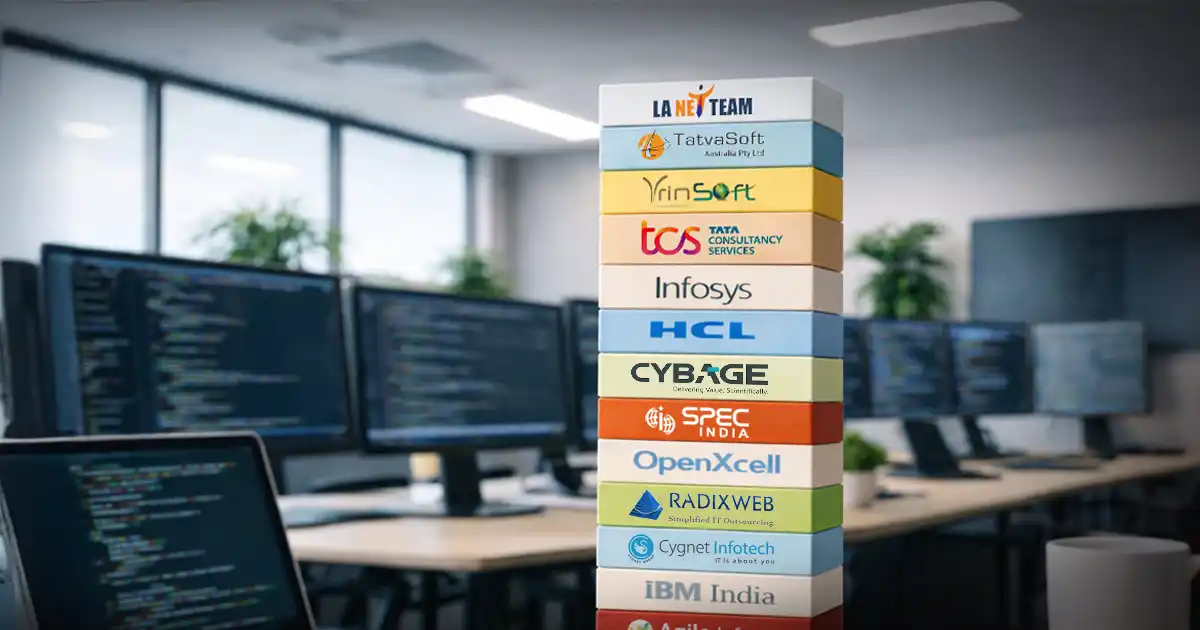
Understanding the Legal Status and Structure of a Sole Proprietorship
Dreaming of your own business in India? A sole proprietorship is often the simplest start, but don’t overlook the essentials. Understanding the Sole Proprietorship Status is critical. It’s the foundation of your business, impacting your legal responsibilities and potential challenges.
RegisterKaro simplifies the process. We handle licenses, permits, and compliance, letting you focus on your business. Launch confidently with our expert support. This blog will clarify the legal landscape, advantages, and steps to launch your sole proprietorship confidently.
What is Sole Proprietorship?
A sole proprietorship is the simplest and most common form of individual business in India. It is owned and operated by a single individual who bears all the responsibilities for its operations.
For instance, a local bakery typically operates as a sole proprietorship, where the owner directly manages the business.
In India, small businesses prefer the sole proprietorship due to its ease of setup and management. Understanding the Sole Proprietorship Status is crucial for anyone considering this business structure. This knowledge helps you make informed decisions regarding business formation, operations, and legal compliance.
Legal Status of a Sole Proprietorship
Sole Proprietorship Status refers to the fact that there is no legal distinction between the owner and the entity itself. The business and the owner are one and the same. This has several key implications:
- No Separate Legal Entity: The business and the owner are legally inseparable. For example, if you run a consulting business under your name, creditors could use your personal assets, such as your home or car, to pay off business debts if the business faces financial trouble.
- Unlimited Liability: The owner is personally liable for all debts and obligations incurred by the business. For instance, if a sole proprietorship is sued for a breach of contract or faces financial difficulties, the owner risks losing their personal assets.
In India, the Sole Proprietorship Status does not require separate registration as a legal entity, but it must still comply with tax laws, licenses, and regulations relevant to its business operations.
Example:
If you run a small retail shop in Delhi and are the only owner, you would consider your business a sole proprietorship. If the business faces financial trouble, you could use your personal savings or assets to pay business debts, as there is no distinction between your personal and business finances.
So, the Sole Proprietorship Status means that your personal assets are at risk in case of business debts
Structure of a Sole Proprietorship
The structure of a sole proprietorship is incredibly simple, making it an appealing choice for many small business owners in India. With the Sole Proprietorship Status, you have full control over your business decisions, including pricing, operations, and service offerings:
- Single Ownership: A sole proprietor owns and controls all aspects of the business, including decisions on pricing, product offerings, and day-to-day operations. For example, a solo artist or a freelance software developer has full autonomy in setting rates and managing projects.
- Full Control: The owner has complete control over business decisions, without the need for approval from partners or shareholders. For instance, a small retail shop owner has the power to decide inventory levels, product lines, and marketing strategies without consulting others.
- No Corporate Formalities: Unlike corporations or partnerships, there are no complex formalities such as meetings or bylaws to follow. This makes a sole proprietorship easy to set up and manage, making it an ideal choice for small businesses with a single owner.
In comparison with other business structures like partnerships or limited liability companies (LLCs), the sole proprietorship status is much easier to manage with fewer regulatory requirements.
Example: If you decide to start a freelance digital marketing agency in India, you have complete control over your work schedule, pricing, and client interactions. You don’t need to consult anyone or form a partnership to make key decisions.

Advantages of a Sole Proprietorship
A sole proprietorship offers several key benefits that make it an attractive option for entrepreneurs:
- Ease of Formation: Setting up a sole proprietorship in India is straightforward and requires minimal paperwork compared to other business structures. The Sole Proprietorship Status allows for an easy and quick setup, making it ideal for freelancers and small businesses.
Example: a freelance photographer can simply start their business without extensive registration or paperwork.
- Full Control: As the sole owner, you make all the decisions regarding business operations. With the Sole Proprietorship Status, you have complete control over all aspects of your business, from pricing to customer service.
Example: a solo consultant can choose their clients and set the terms of engagement without consulting others.
- Simple Taxation: You report the profits from the business on your personal tax return, avoiding the complexity of corporate tax filings. This reduces administrative costs and simplifies compliance.
Fact: The Indian Income Tax Act taxes income earned from a sole proprietorship under the individual’s personal income tax slab.
- Lower Costs: Operating under a sole proprietorship status typically involves fewer costs in terms of legal fees, accounting, and regulatory filings.
Example: An individual running an e-commerce website can avoid the costs associated with setting up a private limited company.
- Flexibility: You can quickly adjust your business model or operations without the need to consult with partners or a board of directors.
Example: A sole proprietor can decide to pivot the business to offer new services without any formal approval process.
Read Blog: Tax Benefits of Registering as a Sole Proprietorship in India
Disadvantages of a Sole Proprietorship
While a sole proprietorship status has its advantages, there are also some limitations to consider:
- Unlimited Liability: The owner is personally responsible for all debts, which means your personal assets are at risk if the business faces financial troubles.
For Example: If a sole proprietorship takes out a loan and cannot repay it, the owner’s personal property could be seized.
- Limited Capital: Raising funds for the business can be difficult, as investors or banks may be hesitant to lend to a sole proprietorship due to its lack of legal structure and limited liability protection.
Example: small businesses looking to expand may find it harder to secure financing without offering collateral or establishing a more formal business structure.
- Limited Life Span: The business may cease to exist upon the death or incapacity of the owner. This significant drawback contrasts with other business structures that have a separate legal existence and can continue operating even if the owner passes away.
- No Employee Benefits: As a sole proprietor, you may not be able to offer benefits such as health insurance or retirement plans to employees, which could make it harder to attract top talent.
Example: If the owner of a sole proprietorship running a catering business in Mumbai becomes ill, the business may shut down unless the owner has a plan in place to ensure continuity.
Steps to Register a Sole Proprietorship in India
Starting a sole proprietorship in India is a simple process, but it’s important to follow the correct steps to ensure compliance with local laws:
- Choose a Business Name: The name should reflect your business and comply with India’s business name regulations. For example, if you are starting a graphic design business, your name could be something descriptive like “Creative Design Studio.”
- Obtain Necessary Licenses and Permits: Depending on the nature of your business, you may need licenses such as GST registration, FSSAI license, or trade licenses. For instance, a food delivery business may need an FSSAI license to operate legally.
- Open a Business Bank Account: While not mandatory, having a separate business bank account helps streamline operations and improves financial management. It also adds credibility to your sole proprietorship status.
- Tax Registration: Applying for PAN and GST registration (only if turnover exceeds Rs. 20 Lakh annually) is an important step in aligning your Sole Proprietorship Status with Indian Tax Laws.
- Comply with Local Laws: Ensure that your sole proprietorship status adheres to any local regulations, including municipal or industry-specific rules. For instance, an online retail business may need to comply with e-commerce guidelines and consumer protection laws.
Example: A freelance web developer in Delhi, benefits from the Sole Proprietorship Status as they might only need a GST registration if their turnover exceeds ₹20 lakhs annually, whereas a restaurant business may need an FSSAI license to comply with food safety regulations.
How RegisterKaro Can Help?
RegisterKaro simplifies the process of setting up your sole proprietorship status in India. We assist with:
- Documentation: Preparing and submitting the required documents for registration.
- Licenses & Permits: Helping you acquire the necessary business licenses and tax registrations.
- Business Compliance: Ensuring that your business is fully compliant with Indian regulations, including GST registration and more.
At RegisterKaro, our team provides expert support throughout the registration process, ensuring that your business formation is quick, easy, and hassle-free. Contact us now to help you get started on your sole proprietorship registration.
Ending Note
The Sole Proprietorship Status offers an excellent opportunity for individuals looking to start their own business in India. Its simplicity, ease of registration, and full control over business operations make it a popular choice for entrepreneurs. However, the unlimited liability and limited capital available through this structure may be disadvantages for some.
If you are considering starting a sole proprietorship, it’s important to weigh the advantages and disadvantages to ensure it aligns with your business goals. With the right guidance from RegisterKaro, you can easily set up your sole proprietorship and start your business with confidence.
Understanding the Legal Status and Structure of a Sole Proprietorship.
Frequently Asked Questions
The Sole Proprietorship Status means there’s no legal distinction between the business owner and the business itself., owner is personally liable for all debts.




